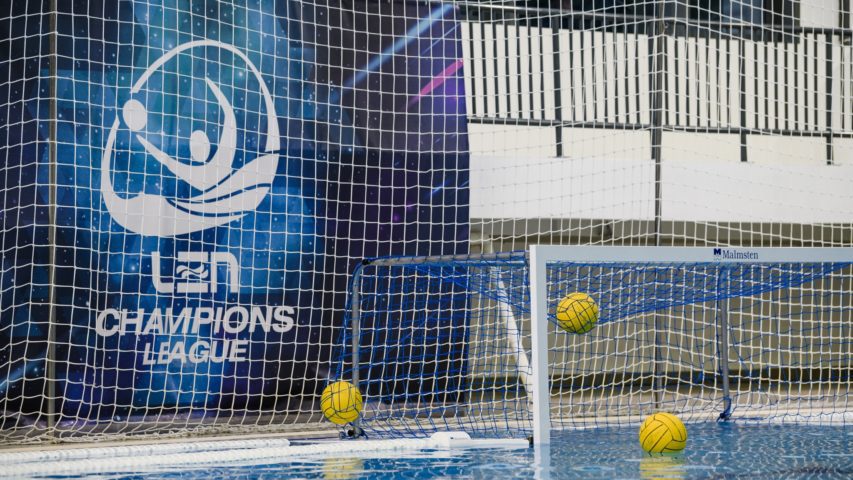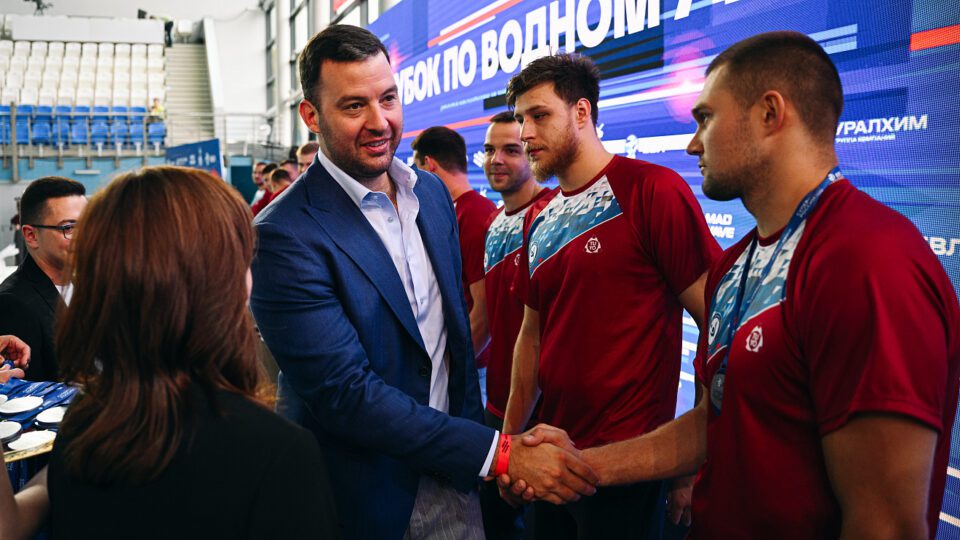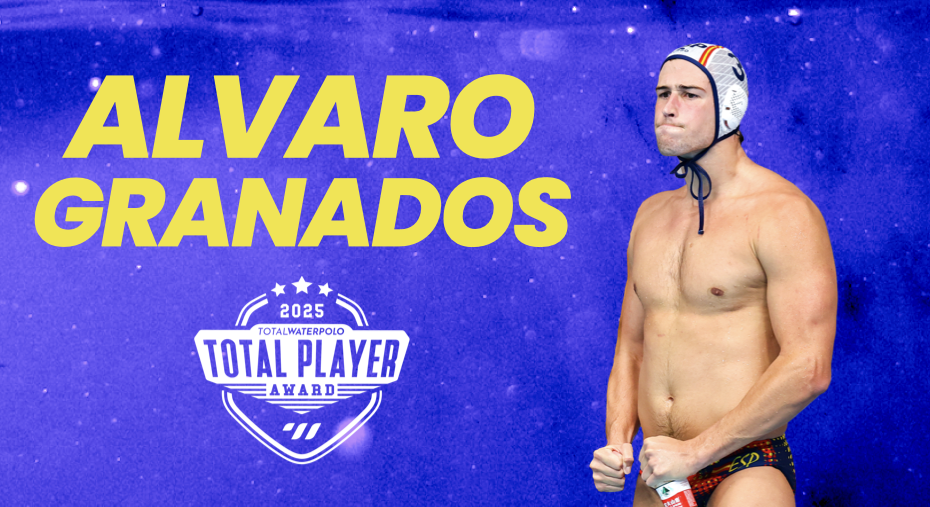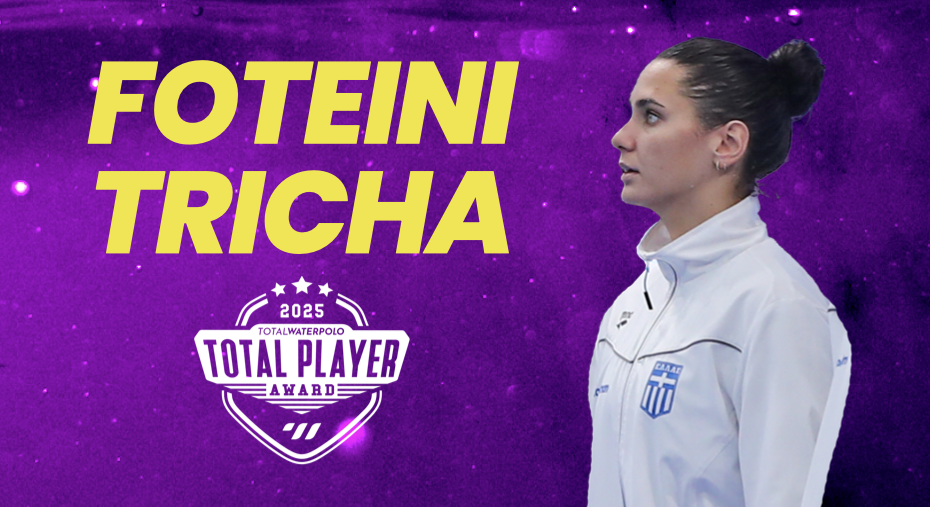The upcoming final tournament of the Champions League in Belgrade (May 31 – June 3) will be the last Final Eight. A new format will be applied from the next season, very similar to the old one, with the Final Four at the end.
The last two Final Fours in the previous formats were held in 2012 and 2013.
These two Champions League seasons were milestones in the history of the competition. The series of turbulent events in the summer of 2012 partially determined the future and the format of the Champions League.
11 foreign players in winning team
Pro Recco won its 7th title in the season 2011/12, playing with an international team. Recco’s policy of many acquisitions and players under the contracts culminated that season. Recco had 25 players on the roster.
The Final Four was played in Oradea. Recco beat Vasas in the semifinals (12:5) and Primorje in the final (11:8) to win the trophy with ten wins in as many games. The narrowest margin in Recco’s games that season was a 10:8 victory over Jadran Herceg Novi in the group stage.
Almost half of Recco’s 25 players were non-Italians.
Eleven foreigners and only two Italians were on Recco’s roster that played at the F4 in Oradea.
The Italians who won the European title were goalkeeper Stefano Tempesti and Maurizio Felugo.
Three Serbs (Filip Filipovic, Dusko Pijetlovic, Andrija Prlainovic), two Croats (Damir Buric and Sandro Sukno), two Hungarians (Norbert Madaras and Tamas Kasas), two Montenegrins (Boris Zlokovic and Aleksandar Ivovic), two Spaniards (Felipe Perrone and Guillermo Molina) played for Pro Recco, along with the Italian tandem, in Oradea.
Some of the players who were on Recco’s 25-player roster for 2012, but weren’t among the 13 in Oradea were Hungarian ace Tibor Benedek (who was the captain in the Italian competitions) and several players who were regular members of the Italian national team at that time (Pietro Figlioli, Niccolo Gitto, Alex Giorgetti, Giacomo Pastorino, etc). Benedek retired in the summer of 2012 to start his coaching career.
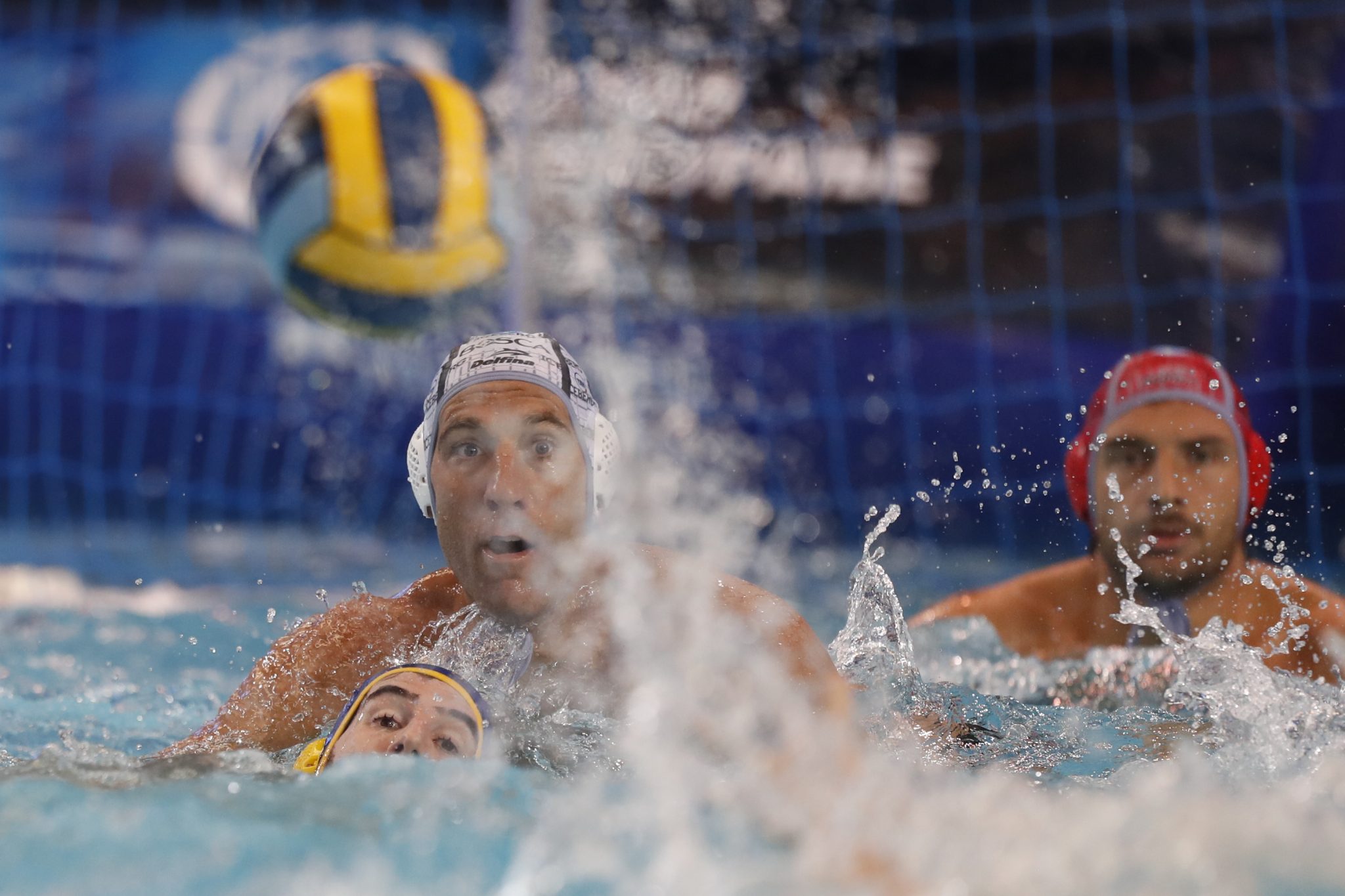
Aleksandar Ivovic Photo by Laszlo Balogh/Total Waterpolo
I Many of the champions from 2012 will participate in the 2023 Final Eight. Sukno is Recco’s head coach, and Ivovic is the current champion’s captain. Pijetlovic wears the cap of Novi Beograd, Filipovic plays for Olympiacos, and Perrone is Barceloneta’s leader.
Everything that happened in the following months caused earthquakes in the European water polo.
In 2012, Recco was one of the initiators of launching the European water polo Super League, with 14 clubs from six countries. However, the project ended in failure because the clubs had to choose. If they had accepted to play in the Super League, they wouldn’t have been able to play in LEN competitions. LEN didn’t support a planned league, and most clubs (almost all) chose to play in LEN competitions and gave up the Super League.
As for the situation in Italy, the Italian Swimming Federation (FIN) didn’t approve proposals about increasing the number of foreign players in the national water polo league.
After these events, Recco’s honorary president Gabriele Volpi and his sons Simone and Matteo, president and vice president, resigned from their positions. As explained in the announcement, their decision resulted from the disappointments caused by LEN’s and FIN’s management and politics.
Gabriele Volpi returned to the club later, but after their resignations, Pro Recco released almost all foreigners.
Madaras was the only one who stayed. Kasas retired after Oradea, while the remaining nine moved to other clubs.
Head coach Guiseppe Porzio also left the club, but he resigned immediately after the Final Four.
Turning point for Recco and Champions League
That was a turning point for LEN, the Champions League and Pro Recco.
Let’s start with Recco. The Italian club refused to play in the next edition of the Champions League. It returned to the European stage in 2013. The club signed several new foreign players (Ivovic returned to the club). But, since then, it has never had such an extensive roster and such many foreigners on the team as it had in 2012. Today, there are five foreign players at Recco.
And what happened with the Champions League?
LEN started changing the format in response to the attempts to form the Super League.
In the season 2012/13, twenty-one teams participated in the Group stage (they were split into four groups). It was planned that 24 teams play in the Group Phase, but all of the participants in the 2012 F4 (Pro Recco, Primorje,Mladost, Vasas), than Posillipo, Montenegrin clubs didn’t enter the CHL explaining their decisions with different reasons. One of the clubs which advanced to the group phase through qualifications (Vitebech, Belarus) withdrew.
LEN’s new step was the wild-card system. From 2013/14, twelve teams participated in the Champions League (eight of them had wild cards, allocated by the special criteria), and the seasons finished with the Final Six tournaments. A few years after, the number of wild-card holders increased to 12 (therefore, the number of the teams in the group stage expanded to 16) and the Final Eight replaced the Final Six. The host of the F6/F8 directly qualified for the tournament. From the next autumn, this formula will be the past.
The wild card system will remain , but as we reported, the results in the national championships and the Champions League will be the primary criteria for their allocation. The season will end with the Final Four, and the host won’t be directly qualified.
Winners with no foreigners
We looked back to the season when Pro Recco set a record in the number of foreigners on the team.
If you ask, “When did a team without foreigners win the Champions League for the last time?” you don’t have to search the data from the 1970s;, 1980s, or 1990s….
It happened in 2012/13, just after the season that impacted changes in European water polo.
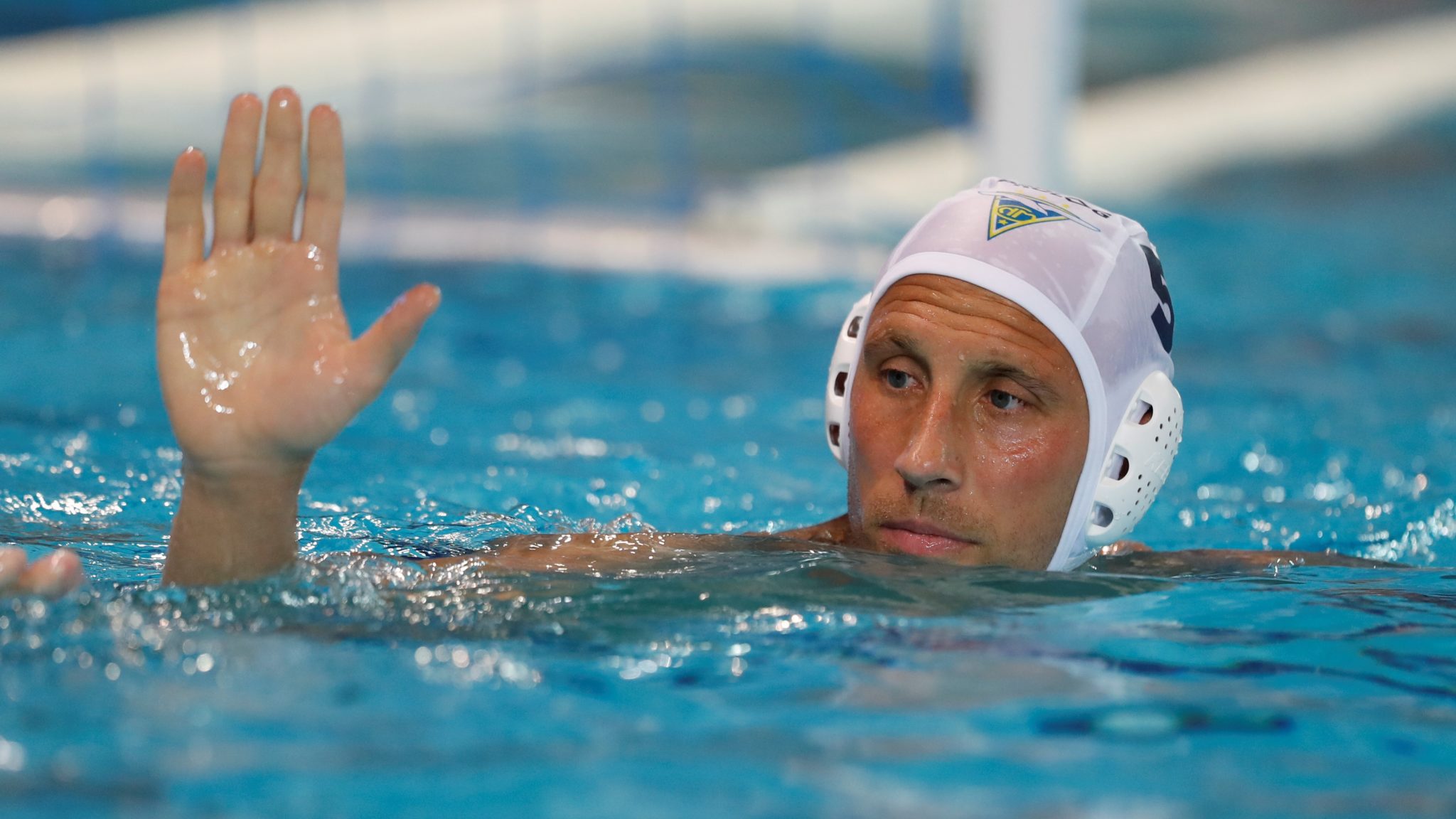
Andrija Prlainovic won the titles in 2012 and 2013 Photo by Laszlo Balogh/Total Waterpolo
Crvena Zvezda won the 2013 Champions League, which was quite a surprising but well-deserved result. Crvena Zvezda beat Jug 8:7 in the final in Belgrade, in front of 4.000 spectators at the pool Banjica. A day before, the “Red Whites” defeated Barceloneta in the semifinals.
Only Serbian players were on Crvena Zvezda’s roster. The squad leaders were Andrija Prlainovic and Dusko Pijetlovic, who arrived at Zvezda from Pro Recco a year before. Besides them, the members of the winning team, coached by Dejan Savic, were Denis Sefik, Nikola Radjen, Strahinja Rasovic, Viktor Rasovic, Marko Avramovic, Petar Ivosevic, Sava Randjelovic, Boric Vapenski, Mihajlo Milicevic, Marko Draksimovic, Nikola Stojcic (Nikola Eskert also played for Crvena Zvezda in that season).
I Four of those will participate in the 2023 F8 – Pijetlovic and brothers Rasovic are in Novi Beograd. Boris Vapenski, who gained dual Serbian-Georgian citizenship in the meantime, plays for Brescia.
Before Crvena Zvezda, the last club that won the title only with domestic players was Croatian Jug in the season 2005/06. Jug defeated Pro Recco in the final in Dubrovnik.
In 2006, the following players played for Jug: Goran Volarevic, Andrija Komadina, Miho Boskovic, Igor Racunica, Ognjen Krzic, Mile Smodlaka, Pavo Markovic, Andro Buslje, Frano Karac, Niksa Dobud, Maro Jokovic, Elvis Fatovic, Niksa Drobac and second goalkeeper Davor Car.
I Elvis Fatovic, who was Jug’s captain, coaches Barceloneta today. Maro Jokovic will play for Jug and Andro Buslje for Olympiacos at the 2023 F8.
More articles about the Champions League
More articles about the water polo history
Follow us on Facebook, Twitter and Instagram. For more video content, subscribe to our Youtube Channel and Tik Tok account



